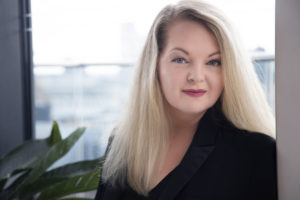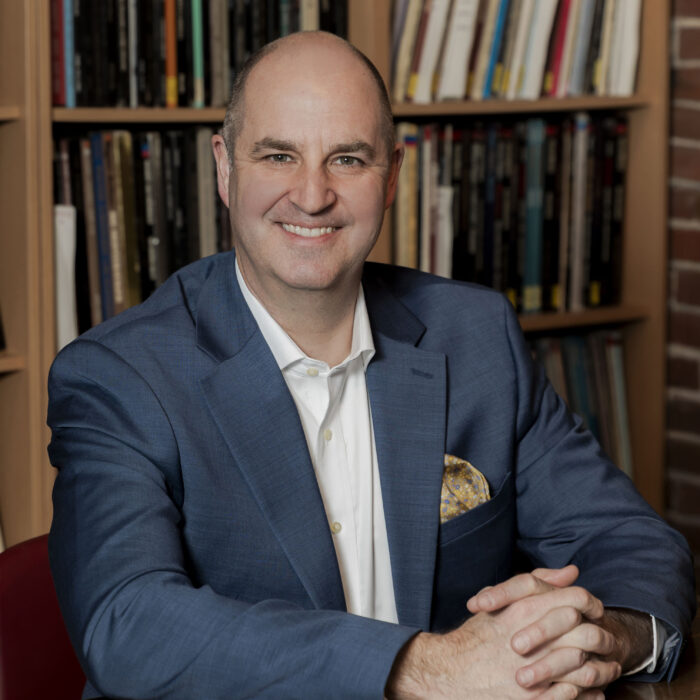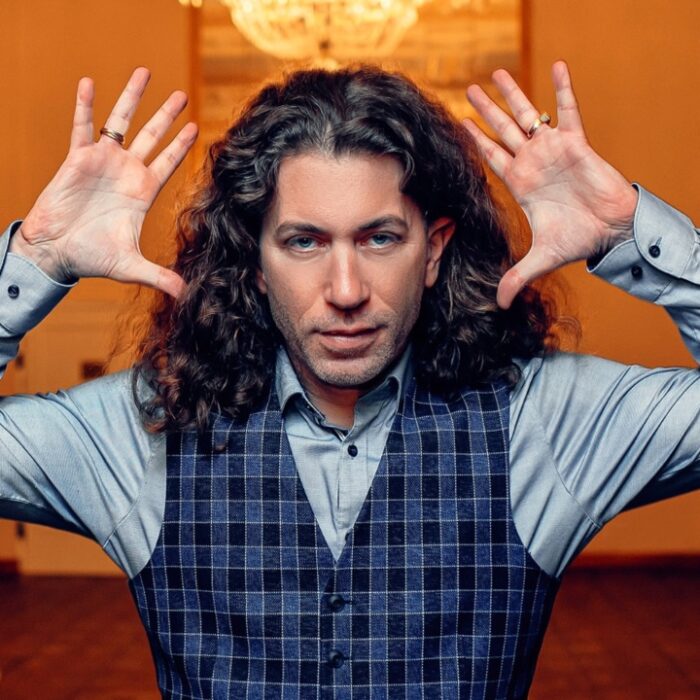
Opera in the Times of COVID: Mezzo-Soprano Elizabeth DeShong, A Versatile Baroque & Bel Canto Star
By David Salazar(Credit: Frances Marshall)
“Opera in the Times of COVID” is an interview series in collaboration with photographer Frances Marshall of Marshall Light Studio. We talk to notable figures from around the opera world to get their perspective on how they feel these challenging times may change opera’s present and future.
Elizabeth DeShong is a versatile mezzo who feels as at home in Rossini’s florid coloratura as she does in Puccini’s vocal ebbs and flows. Of her recent Metropolitan Opera performance in “Semiramide,” OperaWire’s review noted, “the true star of the night was Elizabeth DeShong as Arsace. From the first note to her last, she suited the vocal lines perfectly. The coloratura was pure and clean at all moments, and she seemed to be exploring its expressive qualities throughout.”
The mezzo-soprano has appeared at nearly all the major companies around the opera world including the Glyndebourne Festival, Bayerische Staatsoper, Royal Opera House, Lyric Opera of Chicago, LA Opera, and Théâtre des Champs-Elysées, among many others.
OperaWire: What have you done during this time to keep yourself positive and productive?
Elizabeth DeShong: Taking one day at a time is important. It is understandable that we want to predict what will happen in days to come, but, if this crisis has proven anything, it is that we can’t predict the future.
For me, I’m reminding myself of all of the times I have said I would love to be able to sleep in my own bed, and I’m savoring this time at home with my husband. I’ve been cooking, crafting, wearing only clothes that feel good (many with cat themes), and taking pictures.
While everyone needs to handle this crisis in their own way, I think the emphasis on productivity needs to be lessened. Do what keeps you sane and nurtures your spirit, but for those who are able to stay at home, using the time to slow down and really check in with oneself has the potential to be revelatory.
What do you feel will be the greatest impacts of COVID-19 on the opera world moving forward? What are some new developments that you feel are here to stay?
It is really hard to speculate what the long term impacts will be to the opera world moving forward. Once a course of treatment or a vaccine is developed and made accessible, I think people will be quick to want to resume business as it was before. It does, however, seem to me that streaming will be of greater interest and importance, at least in the early stages of returning to life as we knew it. Finding ways to allow people to purchase tickets online to live streamed events will be vital, especially while large gatherings are limited. Also, as companies try to recoup financially from shutdowns, concert versions of operas would make a lot of sense. It is easier to find replacements in the event that a singer is ill, production costs are much less, etc. We will also, likely, find ourselves working more in our home countries.
OW: One of the major developments of this time are the emergence of streaming and connecting with fans and followers more directly via social media. How has this impacted your time in quarantine?
ED: To be honest, I haven’t changed my approach to social media. Streaming isn’t a new concept, but the reliance on it for communication at this time has definitely increased. Certainly, I have noticed many artists developing podcasts and posting video collaborations. This is a lovely thing to do, if you are so inclined.
I communicate on social media, currently, the way I have always communicated… I post updates about performances that are being streamed via Met On Demand and orchestra websites. The rest of my content is simply about what I have on my mind, be it politics, random observations, or pics of my #quarantinecouture cat-themed apparel that I never get to wear. And, as always, my photo blog, asingerssuitcase.com is providing a little window into my daily life.
OW: What do you enjoy most about this new development?
I am pleased that companies are making opera and concert performances available for free to the public while we are all staying at home. This is wonderful and will help keep and, possibly, foster a greater audience in the future.
Personally, I don’t really follow it, otherwise. I will be grateful to return to making music when the time comes, but for now I am enjoying my daily routine. My life is a lot more than the job that I do, and as long as I have my friends, family, and the nature surrounding me, I’m good.
OW: How can opera companies and artists around the world learn from this preponderance of digital performances moving forward and should it become a bigger part of the opera season experience moving forward?
ED: At the very least, we are aware that we need viable contingency plans for taking our art form out of the concert hall. It will never be the same as experiencing the art form in person and in the proper acoustics, but it is something.
The world at large has already embraced streaming, and we will have to incorporate this into our regular operations in order to keep going in times of crisis, and likely, always. We have to view it as a supplement to the live experience and work to make it as high quality of an experience as possible.
OW: What are you most excited about doing once the quarantine officially comes to an end and we are allowed to resume a “normal” life?
ED: Normal life for me has always involved a fair amount of social distancing, so the difference won’t be shocking. Haha! That said, I will be excited to visit my extended family and share a meal. I will also enjoy not having to sanitize every grocery item that enters my home.
OW: What activities do you miss the most?
ED: I have a lovely nature realm very close to my home that I enjoy, but people aren’t observing the rules of social distancing enough for me to be able to safely go into the park to hike. Strolling casually into Whole Foods was nice…
OW: Most people in quarantine are actively engaging with the arts via either music, TV, film, reading, literature. Etc. What have you been watching or reading during this time?
ED: Netflix, YouTube, HBO, Showtime, Hulu, and Disney+ have been my constant companions. My current favorite shows are “Ozark,” “Homeland,” “Better Call Saul,” “Westworld,” “Home,” “Kidding,” and the list goes on. Despite the hype, I have zero interest in “Tiger King.”
“Mycophilia” by Eugenia Bone, “The Inconvenient Indian” by Thomas King, and “The Running Hare” by John Lewis-Stempel are next on my reading list.
OW: Speaking more globally about the pandemic, what can the world learn about this experience? What do hope to see from our leaders (political or even industry) in order to build a better future that enables us to better manage any similar type of situation?
ED: We need to realize that we are ONE WORLD. What effects one part of the globe, effects the rest. Our individual actions impact the whole of humanity. We are vulnerable. Our “leaders” (the US is without one) need to understand these concepts. Our selfishness has gotten us here. People want what they want at any cost. We will not survive our own greed.
My greatest hope is that we as a species learn from our mistakes and move forward in a way that embraces the whole, not just the individual.
I hope, personally, that the people of the United States elect a new President in November. We, quite literally, cannot survive the continued rejection of science, the corporate greed, the lies, the cruelty, the suppression of individual rights, the racism (individual and systemic), the widening wealth gap, environmental destruction, violent sexism, etc. Our leaders have to rely on and value the knowledge of others and accept that we, as individuals, despite how Google might make us feel, don’t know everything.
Categories
Interviews

